Top Tips for Children Preparing for a Race from WPA Ambassador Jo Pavey
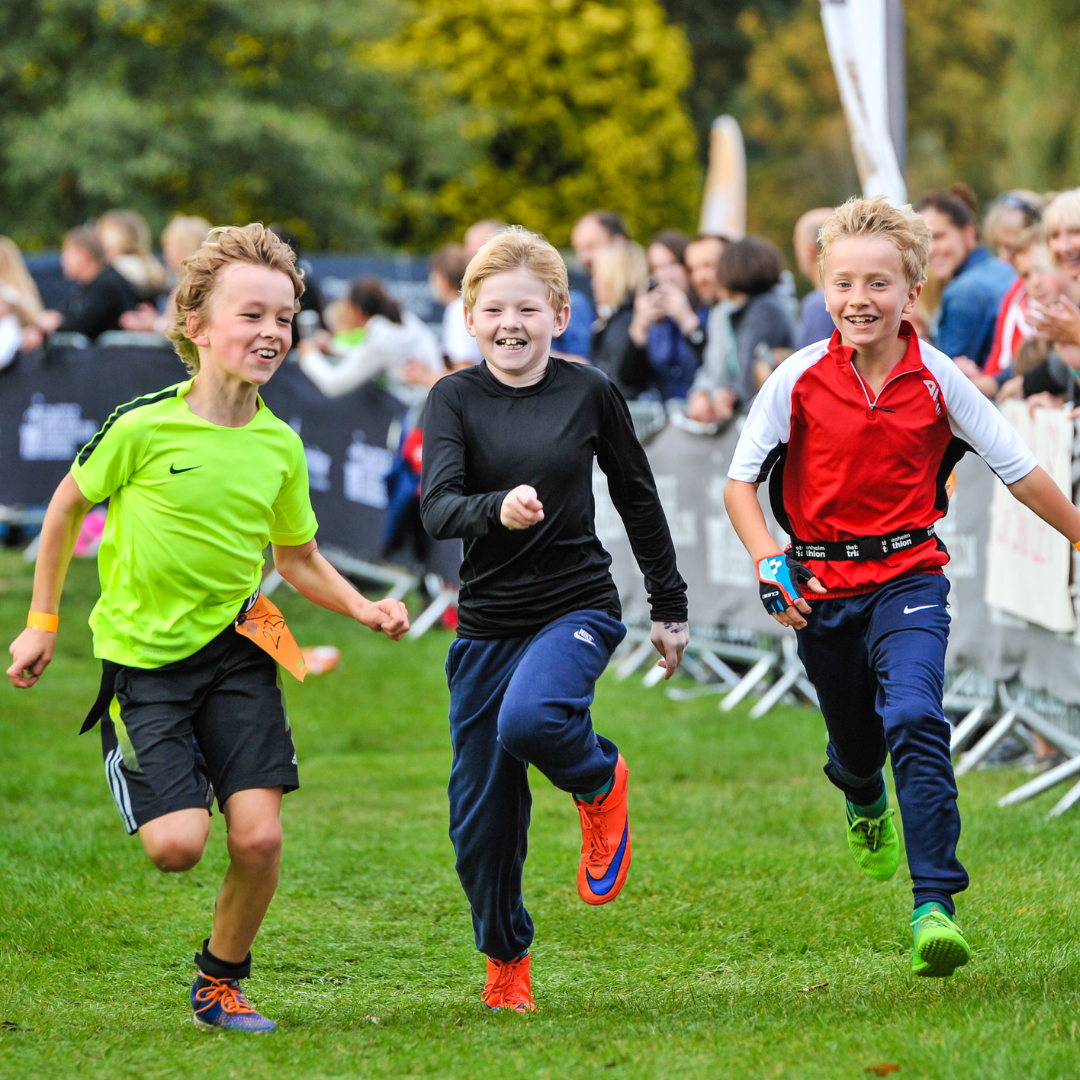
Enjoy!
Getting active should always be a positive experience for kids, so they’re keen to enjoy a healthy lifestyle, otherwise they could get put off or experience anxiety. They should feel proud of themselves for taking part and be praised for trying their best, whatever their result in a competition. Children can also gain so much from the camaraderie at events and enjoy cheering each other on. If a child is feeling a bit nervous beforehand, you can tell them that it’s quite natural to feel a bit worried, but they’ll feel great when they’ve done it. It’s crucial that they don’t feel any pressure and they know you’ll be so pleased with them for giving it a go.
Afterwards it’s good to focus on what they did well, rather than what they could’ve done differently, and you can give them more analysis of their race, if they are specifically asking you for it. Some children will be more used to racing than others, but hopefully once they have tried events they might be inspired to take part in more. Therefore, it’s great if you can chat to children about goals or targets that they like might like to set for themselves. Having personal goals to work towards is motivating and boosts a child’s self-esteem when they can see the improvements they are making.
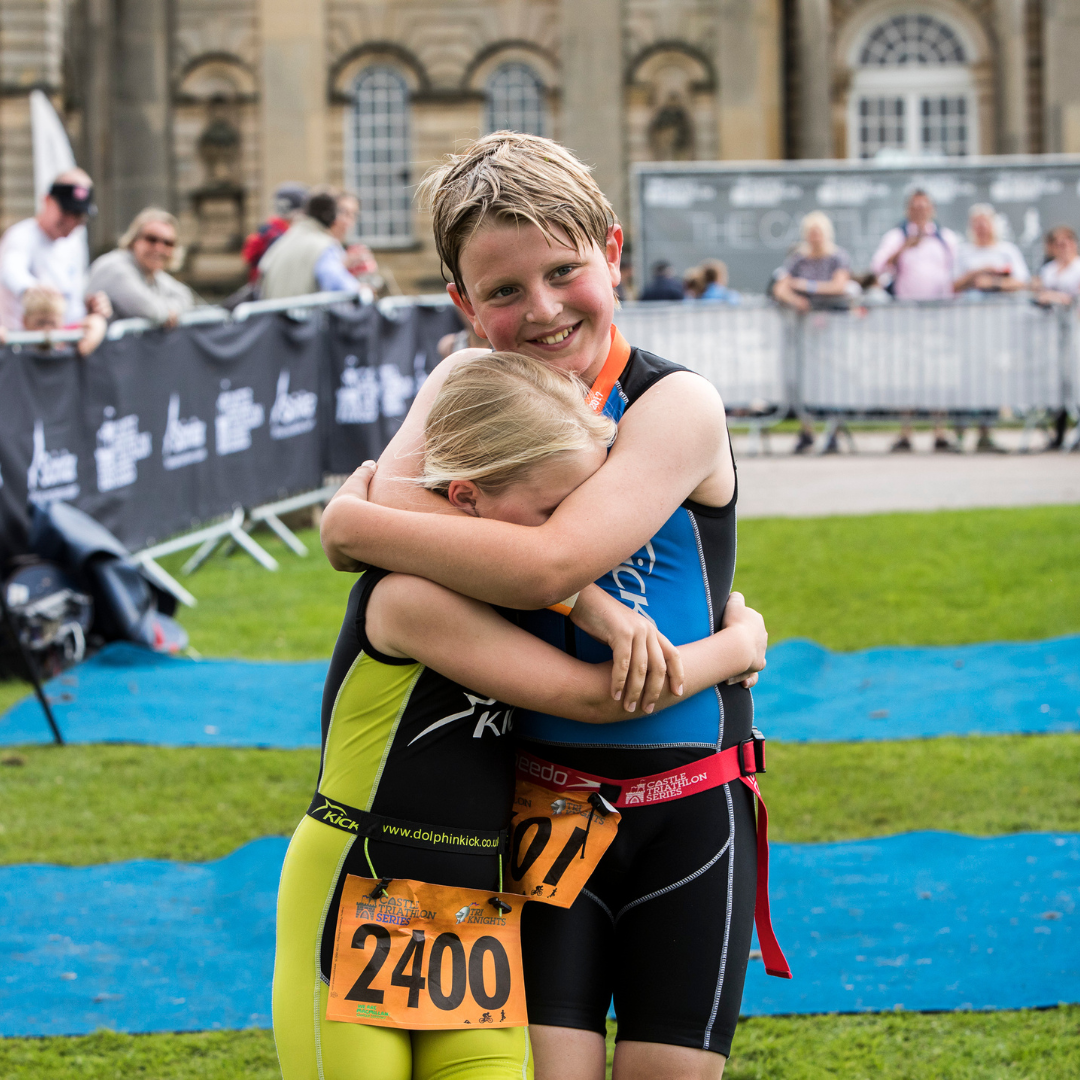
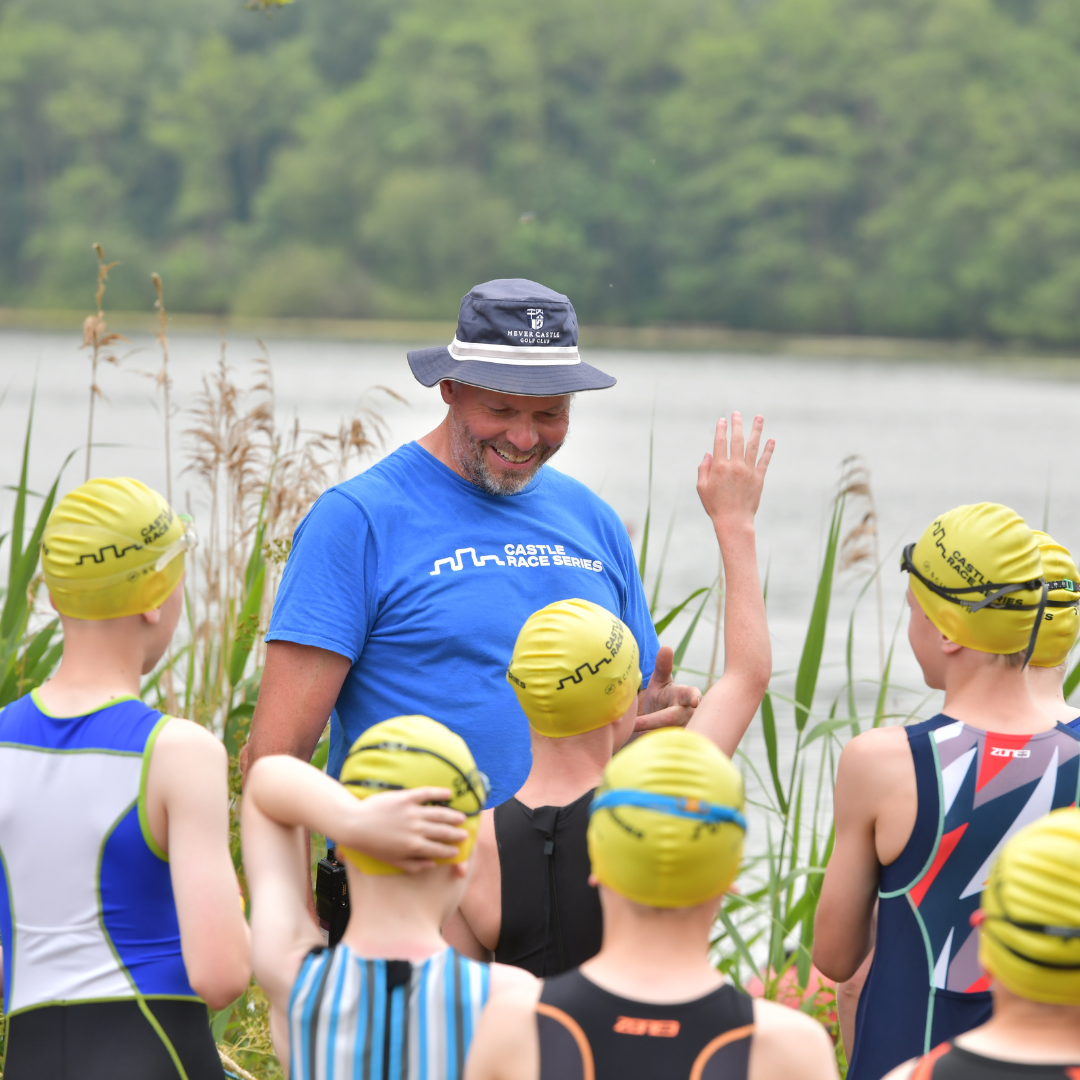
Warm up and Cool Down
Before any race, kids need to do a warm-up so their body is ready to get going. This will enable them to race better as well as help to prevent injuries like muscle strains.They don’t need to warm-up for too long, otherwise they could get too tired before they start – up to a maximum of 10 minutes is a good gauge for younger children. An adequate warm up involves some gentle aerobic exercise, like jogging followed by dynamic stretches, and movements that put the muscles through a good range of motions in an active way.
Examples of dynamic stretches and movements include pulling your knee up to your chest whilst slowly walking forwards, walking lunges, hamstring sweeps, high knees, leg swings, star jumps and jumping on the spot.Warming up as a group with their friends is also a good way of getting rid of pre-race nerves, especially if you make it fun. After the race, a cool-down consisting of a bit of easy jogging followed by some gentle static type stretches, will stop muscles from tightening up and aid recovery from the race.
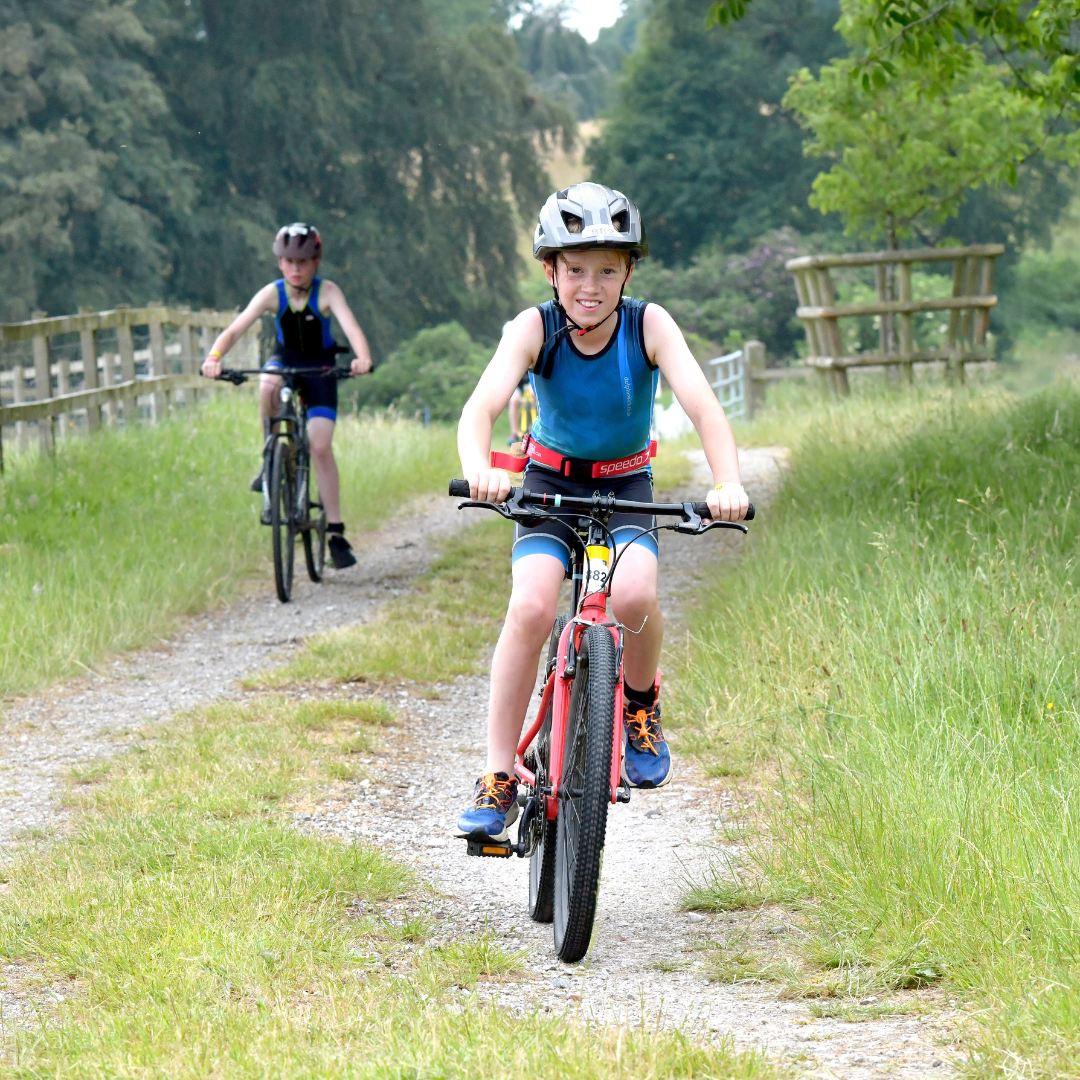
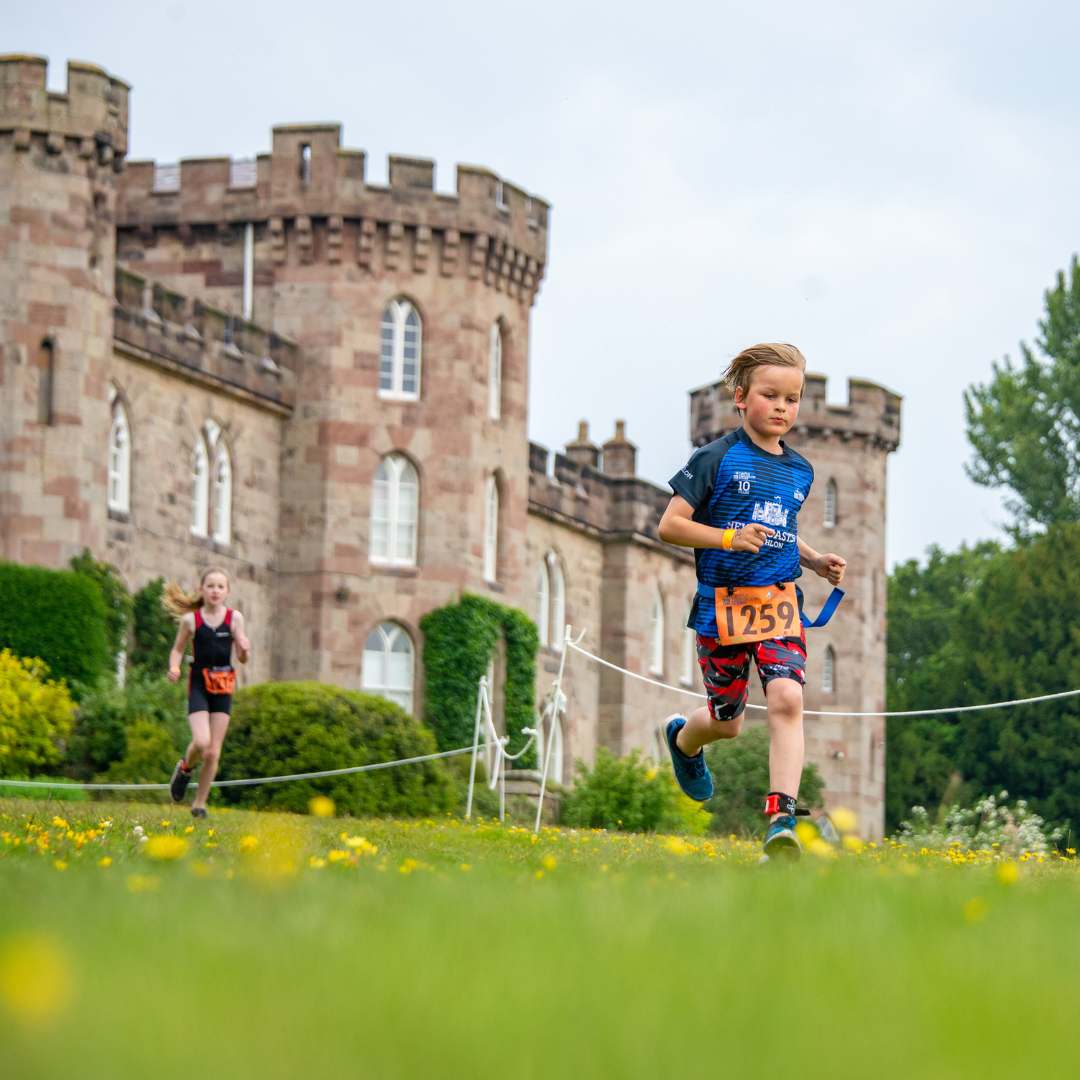
Pacing
It’s so common to see kids go off extremely fast in a race. It’s great that they’re excited and enthusiastic, but if they keep going too hard in the early stages, they’ll find it very tough later on.
It’s actually good if they go off quick for a few seconds, to find their position, but then they need to be encouraged to settle into a pace and effort level they feel they can maintain. With good pacing they’ll feel better in the later stages and be more able to achieve a result that they’re happy with. Pacing however does take a bit of practice and it’s usually something children get better at as they get older.
Nutrition
A good, healthy, balanced diet will help fuel your child’s active lifestyle and make them feel more energised for their races and training. Making good food choices will make it easier for them to recover after their activity. A healthy diet is also so important to support growth and development.
- Carbohydrates – carbohydrates like pasta, rice and potatoes are important to ensure children meet their energy requirements. Without enough fuel they’ll struggle to race well and recover, and if energy deficiencies are severe, it can affect growth and the immune system.
- Protein – good quality protein will help to repair and maintain muscles. Sources include lean meat, fish, dairy products, nuts and soya.
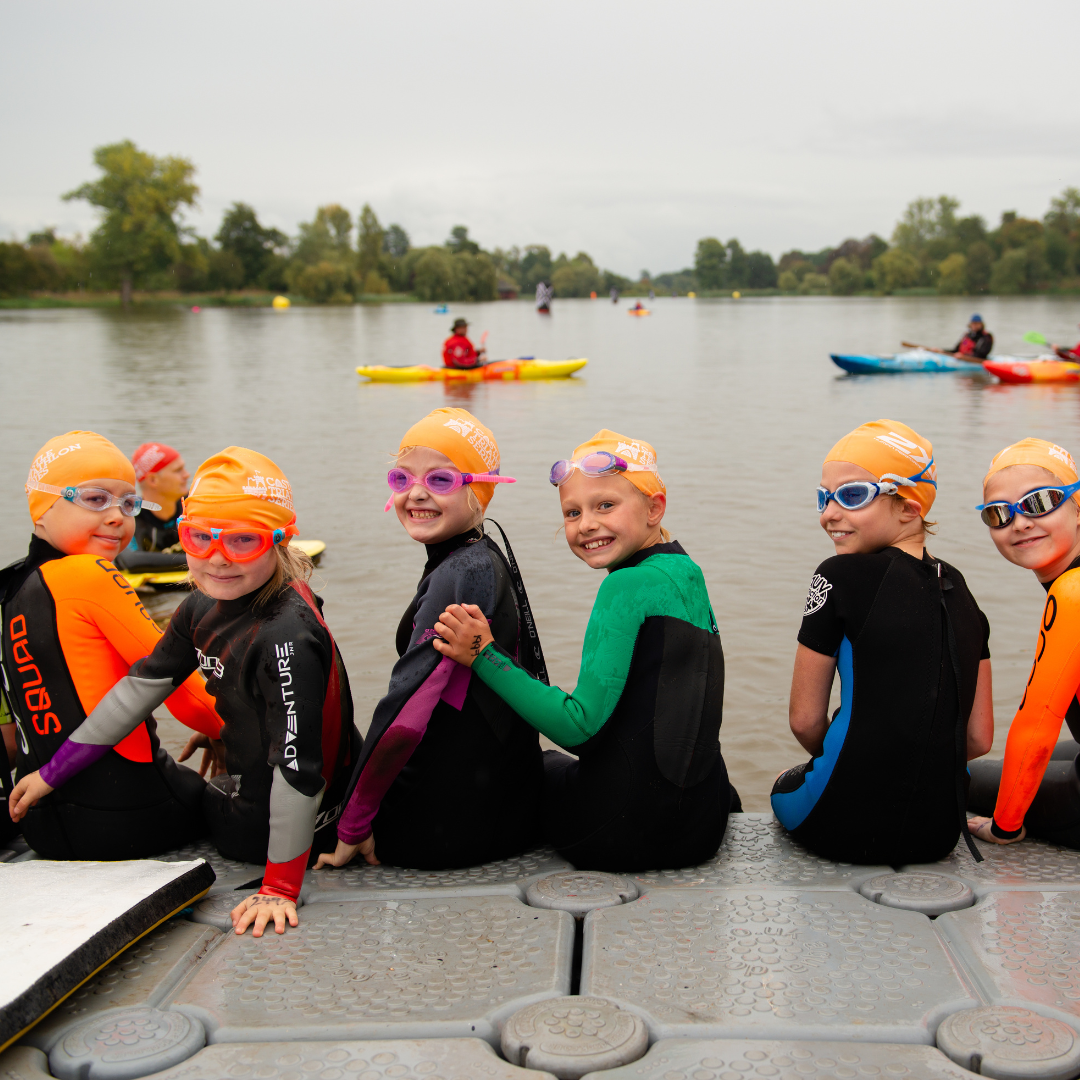
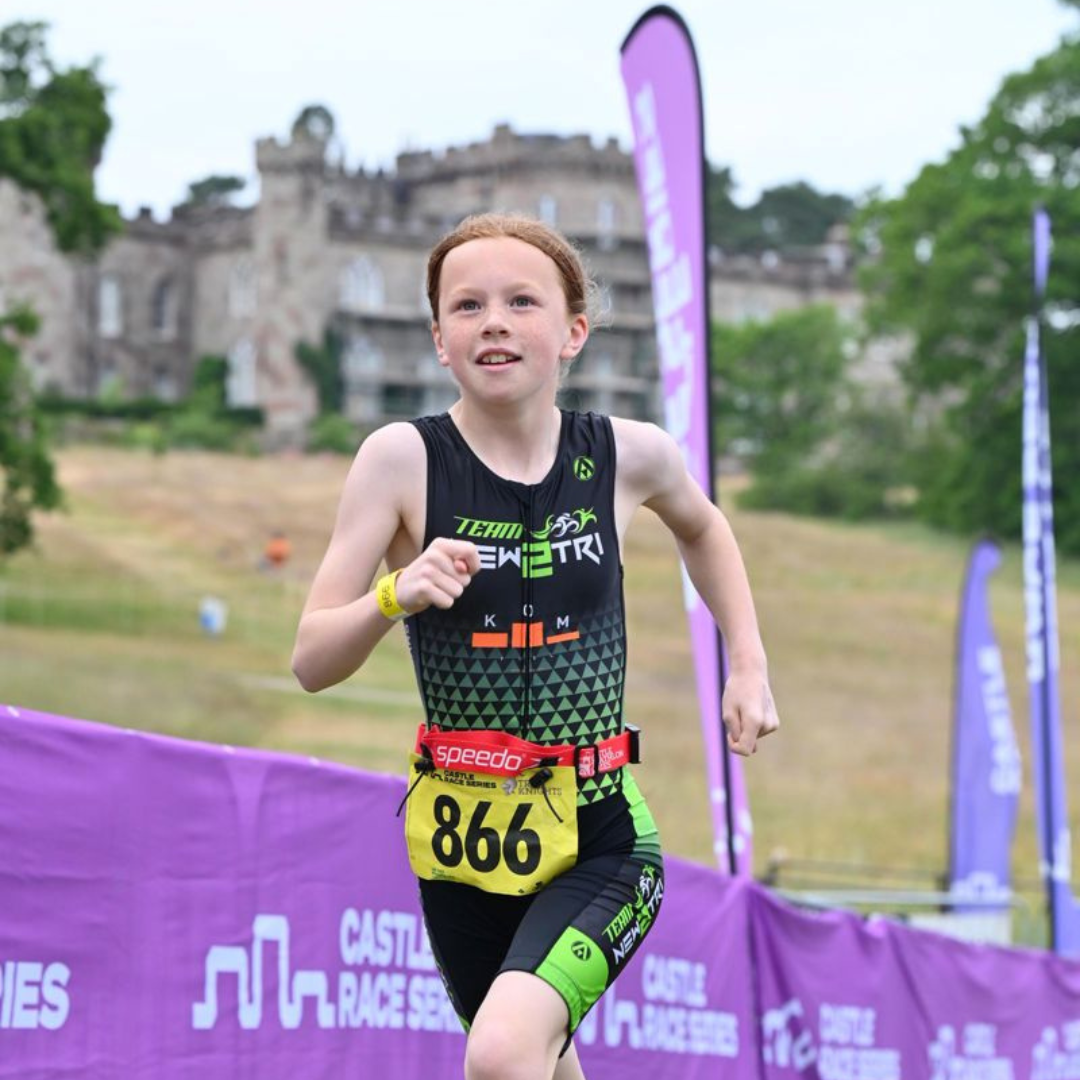
- Healthy fats – healthy fats are necessary for brain health and for absorbing fat-soluble vitamins such as A, D, and E. They can be found in nuts, oily fish, eggs, avocados and vegetable oils etc.
- Vitamins and minerals – these can be gained by eating a varied diet with lots of fruit, vegetables, whole grain carbohydrates and adequate protein and fats. Calcium and iron are particularly important minerals for young athletes.
Race day nutrition
The evening before a race, a good balanced meal such as pasta, some good quality protein, and a few vegetables will help prepare children for the following day. Avoid spicy sauces or anything else that you feel upsets your child’s stomach. On a race day, children should have a pre-race meal about 3 hours before the race. Something that contains carbohydrates with some protein is a good choice, such as a peanut butter sandwich. It’s best not to choose something too sugary, as this could give an initial boost of energy but could cause a slump in energy levels just prior to the race. It’s also fine if they need a smaller plain snack 2 hours before the big event. Another thing to bear in mind is that kids will need to be well hydrated for their event, but encourage sips only in the last hour before, to prevent them needing the loo during their race. After the race try to ensure your child hydrates well and has something to eat within 20 to 30 minutes, then has a decent meal within 2 hours.
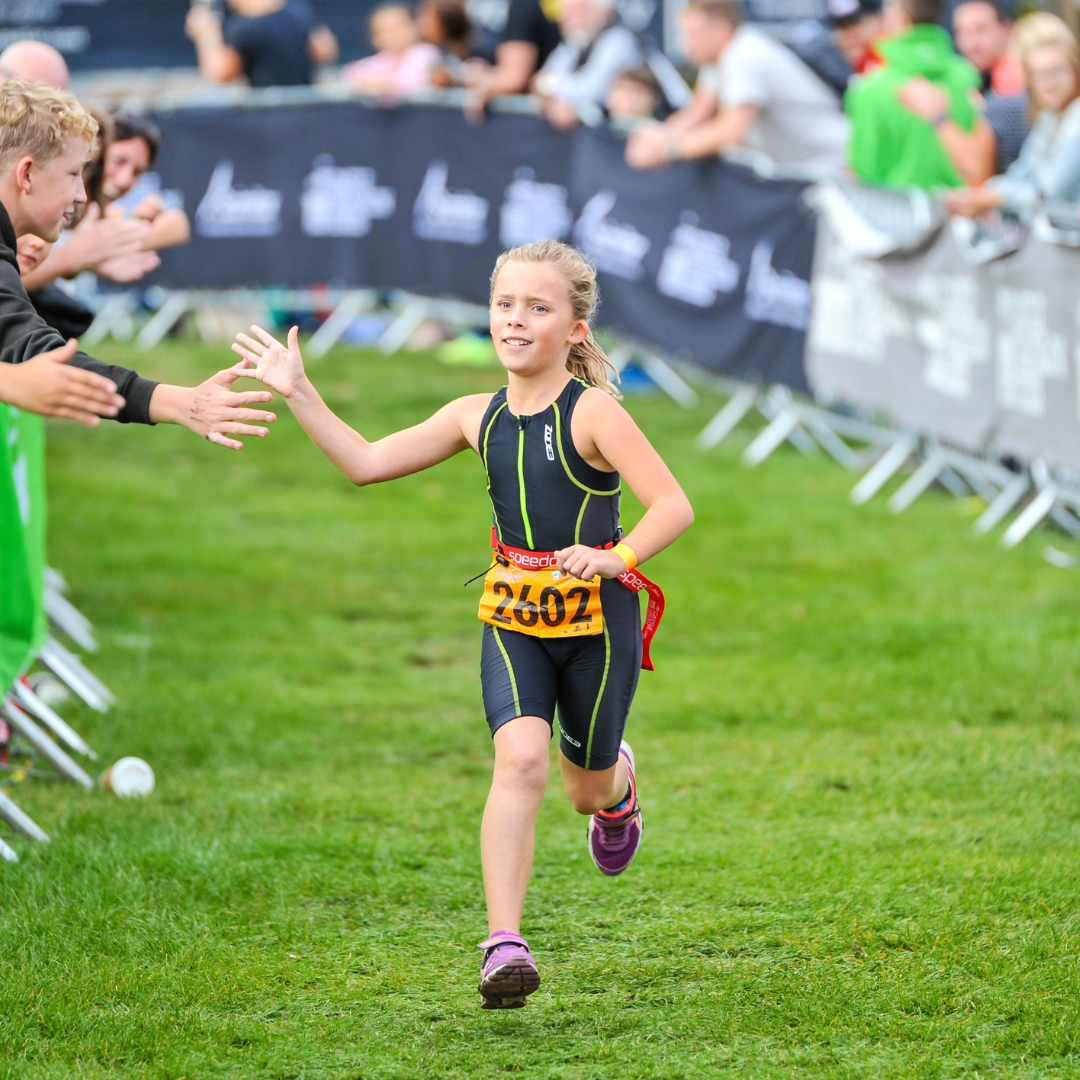
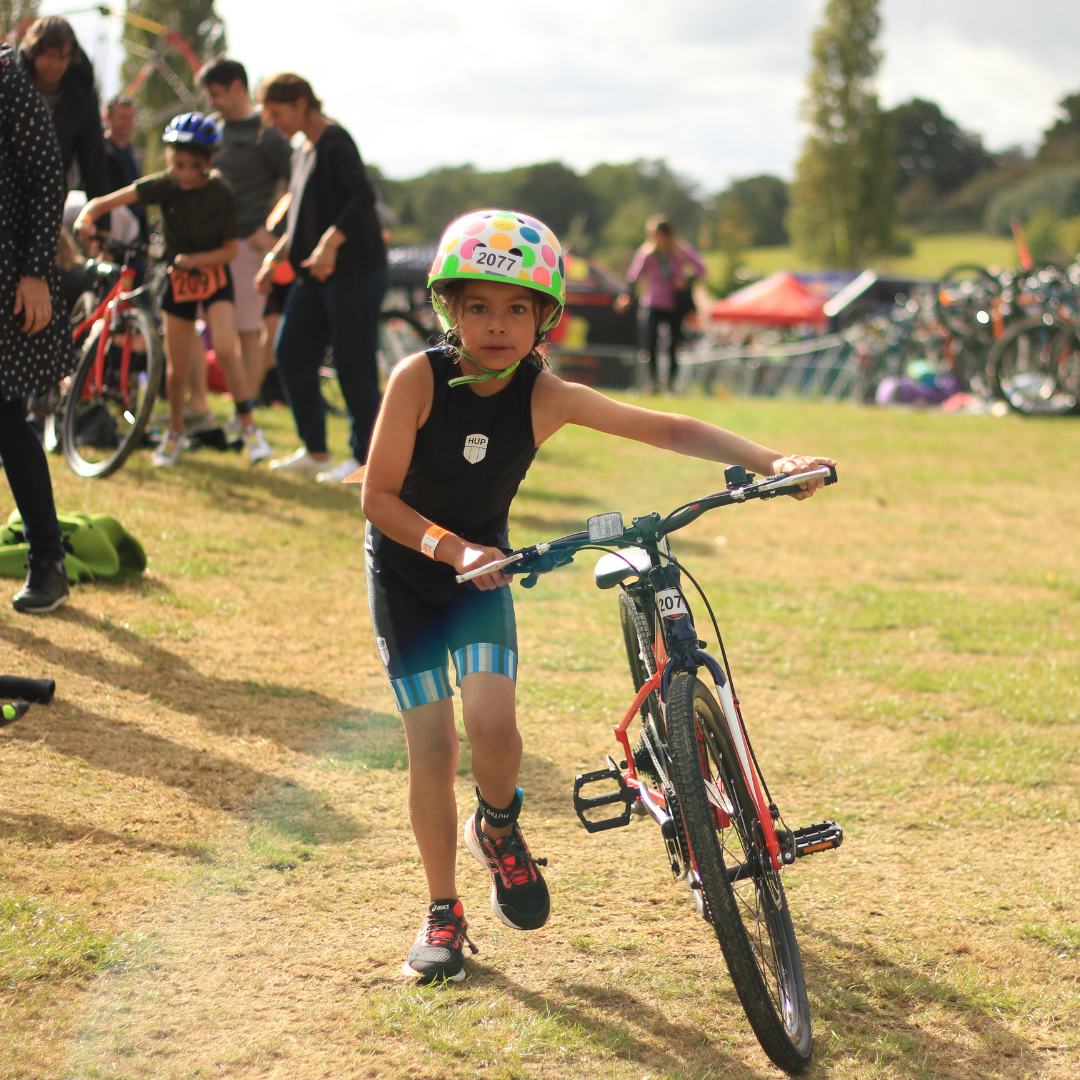
Training
Children should enjoy their training so the number one rule is to keep it fun.
The training needs to be built up gradually as too much, too soon, can cause overuse injuries. Even when they become more experienced at their sport, they still mustn’t do high volumes of training – in extreme cases it can affect their growth and development. Precautions such as running on softer surfaces when possible, varying activities and ensuring the correct footwear is worn, are important too.
Training for children should be enjoyable and depending on their age it can involve games or more structured training. With running, it’s helpful to introduce children to running at different paces and carry out drills to work on their running form.
For younger children simple classic running games are good, like the traffic light game where the coach shouts out green for fast running, amber for easy running and red for stop. Obstacles such as cones and small hurdles can also be used to create running games and shuttle relay type activities are fun too. Older children can do more typical interval type sessions, to develop their performance.
When running, good form can be encouraged by technique drills and verbal cues such as run tall, fast feet, keep arms relaxed. The same principles of training and working on form can be applied to other events. In the days before a race, it’s crucial to taper and have an ease down of training so that children are refreshed and ready for race day.
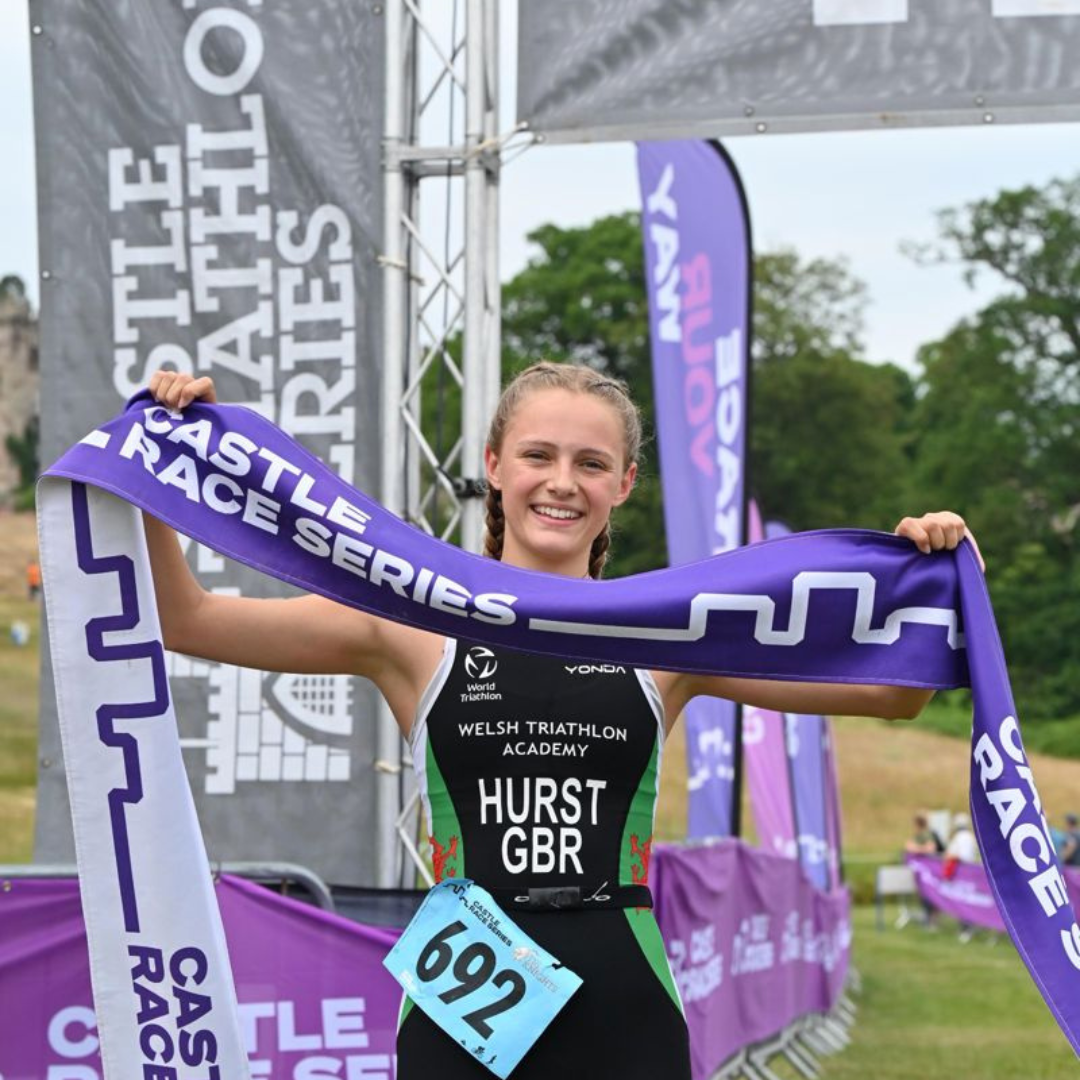
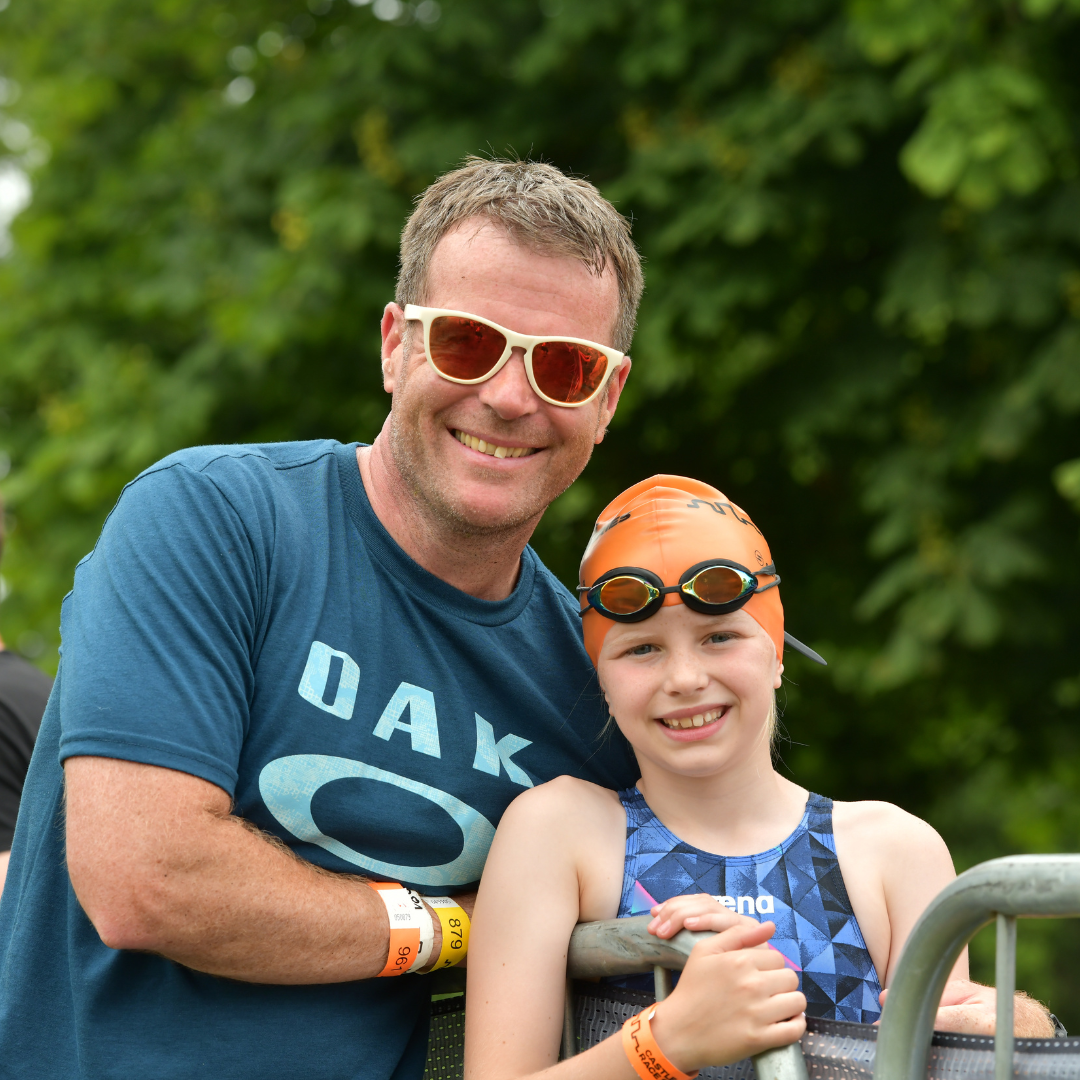
Being active with the family
Being active as a family enables you to have quality time together, whilst benefiting the fitness levels of the whole family. It’s a great way of encouraging kids to have fun whilst inspiring them to enjoy a healthy active lifestyle. Perhaps try running together whilst out for a family walk and keep it fun by including games, like challenging each other to race to landmarks. You may instead choose to run yourself whilst the kids whizz along on their bikes, or maybe go for a family swim.
It’s great if you can take the time to travel to a nice location, and perhaps take a picnic and make a day of it. Whatever you do to be active with kids, keep it fun to encourage them to enjoy a healthy active lifestyle into adulthood.
About Jo Pavey
Jo Pavey is a British long-distance runner and a World, European and Commonwealth medalist. Having represented Great Britain in every Olympic Games from 2000 to 2016, she is the only British runner and track event athlete to have competed in five games.
She lives in Devon with her husband and two children and is also a Brand Ambassador for our Health Insurance and School’s Roadshow partner, WPA Health Insurance.
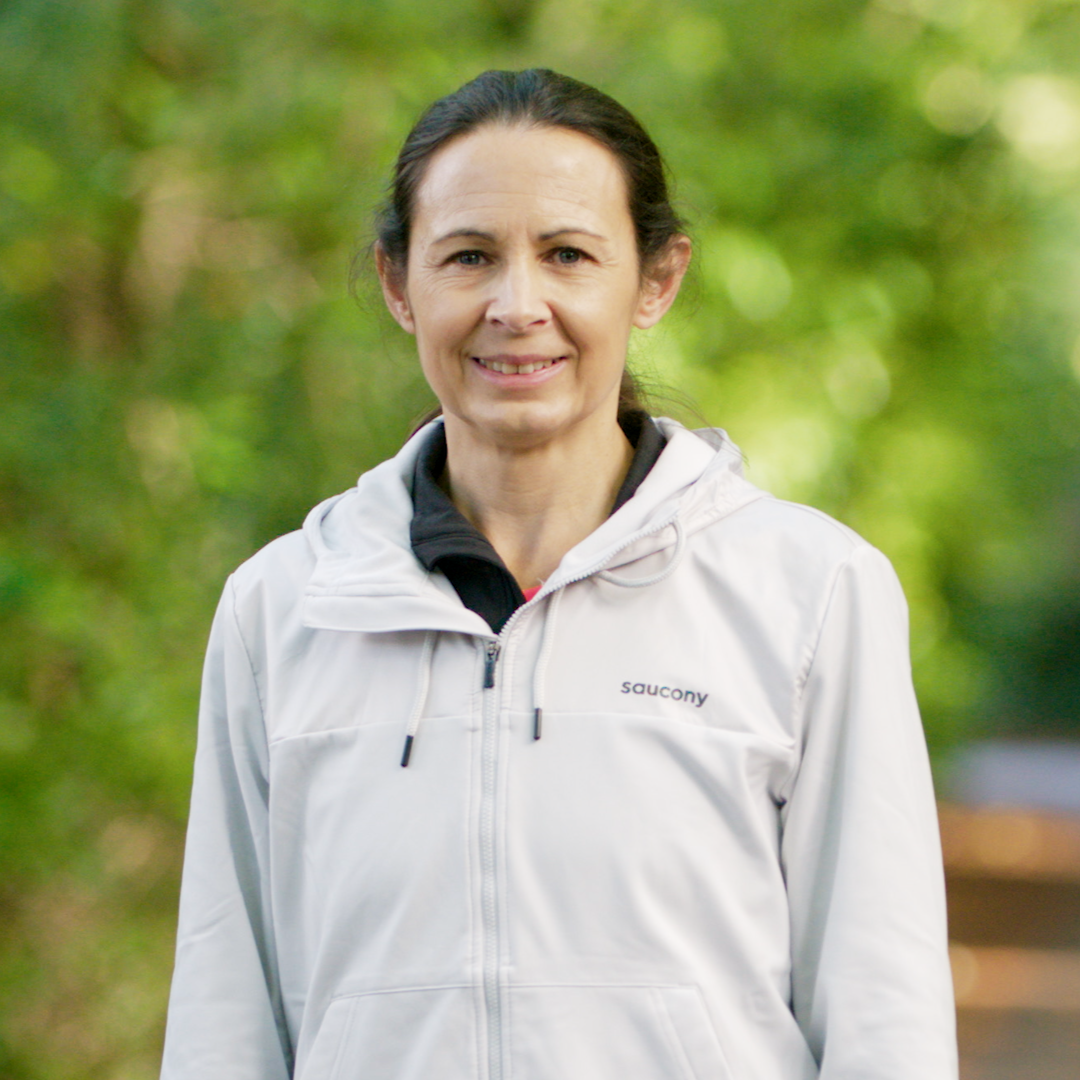
DIVE IN! SIGN UP TO OUR NEWSLETTER
Keep up to date with exclusive discounts, launches and news.

